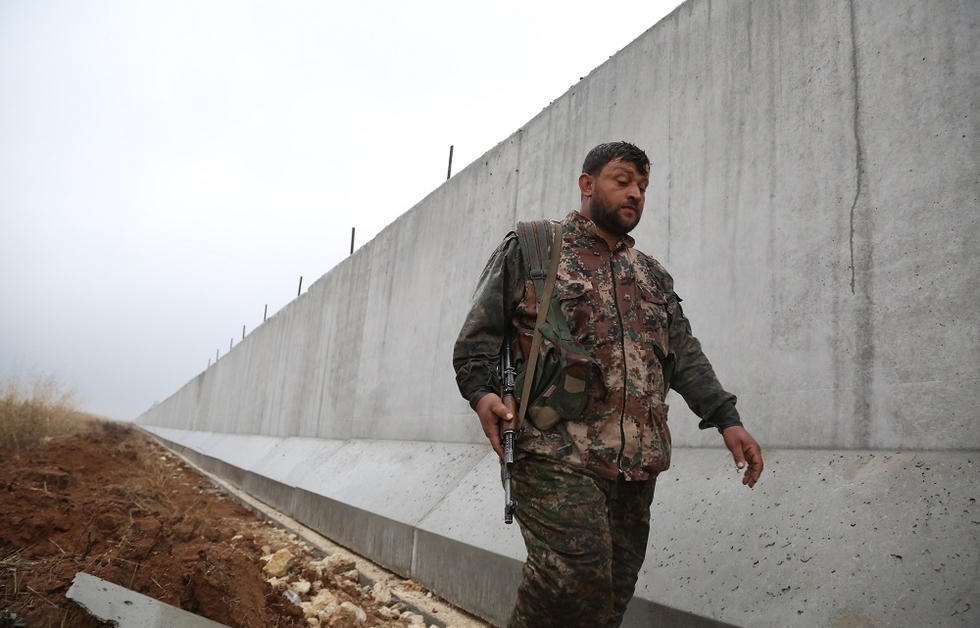Iran welcomes Turkish border wall to block Kurdish militants

The Iranian government on Monday welcomed Turkey's plan to build a 144km wall along its border to prevent the movement of Kurdish groups hostile to Turkey.
The Turkish government announced the move late last week, with Ergun Turan, the head of Turkey's public housing authority, saying it would be complete by October.
Turkey sees these walls as an effective way to stop logistics transfers and the movement of fighters by the Kurdistan Workers' Party (PKK), which is based in the mountainous terrain of northern Iraq’s Qandil region bordering Iran and Turkey.
Iran's foreign ministry spokesman, Bahram Qassemi, said Iran supported any move by Turkey that would improve security.
"The wall will not be built right on the border. It will be in Turkish territory. We welcome any move that increases the security and stability of the border," Qassemi told reporters during his weekly press briefing.
He said Turkish officials had shared the idea of a border wall with their Iranian counterparts before the announcement.
Turkey’s public housing authority has previously constructed a 511km stretch of border wall along the country's 900km border with Syria.
The Turkey-Iran border wall is being constructed with three-metre concrete blocks, which weigh seven tonnes each topped off with a metre of razor wire. The wall will have 15 gates to facilitate official movement between the two countries, according to Turan.
The PKK and its various regional affiliates have often used the difficult terrain along the Turkish-Iranian and Iraqi border to launch raids on Turkish territory.
The Iranian news agency IRNA last week quoted an unnamed Iranian official as welcoming the wall’s construction because it would help the Tehran government tackle the rampant smuggling in the area.
Goods including alcohol, which is illegal in Iran, are smuggled into the country from Turkey and northern Iraq. The smugglers are often the area's Kurds who have networks and contacts in all three countries.
The length of the Turkish-Iranian border is also used as a route by migrants seeking to reach Europe. The migrants who frequently use routes along the Turkish-Iranian border are usually Afghans, Pakistanis and dissident Iranians.
The regime in Tehran is also likely to view the wall as an effective impediment to any possible land assault on its territory from Nato member Turkey as the Donald Trump-led US administration looks to confront Iran in the region.
Turkey's president, Recep Tayyip Erdogan, is set to meet Trump in Washington later on Monday for the first direct talks between the two Nato allies.
Although Iran does not appear to be high on the agenda, the PKK and how Turkey will continue to battle it is expected to be a major item during talks.
Stay informed with MEE's newsletters
Sign up to get the latest alerts, insights and analysis, starting with Turkey Unpacked
Middle East Eye delivers independent and unrivalled coverage and analysis of the Middle East, North Africa and beyond. To learn more about republishing this content and the associated fees, please fill out this form. More about MEE can be found here.




